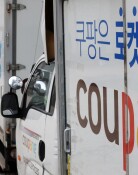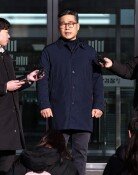U.S., Europe Share Concerns Over Asias Rapid Growth
U.S., Europe Share Concerns Over Asias Rapid Growth
Posted November. 12, 2007 06:16,
The United States and the European Union joined forces to respond to the rapidly changing global economy and the emergence of Asia at the first ever Transatlantic Economic Council (TEC) meeting in Washington last Friday.
The meeting is seen as the beginning of increasing economic cooperation between the two parties.
The results of the meeting are expected to generate much attention as competition for the leading position in the global economy increases between the two regions, which boast the worlds largest trade volumes.
The TEC was established to seek ways to reduce restrictions in trade between the U.S. and EU. The two heads, U.S. President George W. Bush and German Chancellor Angela Merkel, who also held the title of EU President at the time, agreed to set up the TEC in April at their recent summit meeting.
The first meeting of the TEC mainly centered on easing regulations regarding intellectual property rights, corporate investment, and pharmaceuticals. It was co-chaired by White House Chief Economic Advisor Allan Hubbard and EU Commission Vice-President Günter Verheugen, and major economic figures, including Treasury Secretary Henry Paulson and Deputy U.S. Trade Representative Susan Schwab, were also in attendance.
Verheugen said, This meeting will be an opportunity to enhance our economic partnership and to eliminate unnecessary administrative regulations. The TEC wants to come up with ways to ease regulations in some 40 sectors, including mergers and acquisitions (M&As), and sovereign wealth fund investment.
The basic motive behind the efforts to strengthen the U.S.-EU economic partnership is that different criteria in imposing regulations raise transaction costs, which in turn act as impediments to trade. However, the underlying cause is the shared concern that fast-growing Asian economies may reshape the global economic landscape, which has been led by the U.S. and the EU for decades.
EU Trade Commissioner Peter Mandelson said, The trade imbalance against China is increasing everyday for both of us. We need to work together to find ways to survive in a global economy where we may no longer be able to act as the leaders.
Meanwhile, the two sides are increasingly pointing fingers at each other, saying the other side is engaged in excessive trade protectionism and economic nationalism.
As EU begins to flex stronger muscles in the global market with renewed confidence about its strong economic growth and currency, the ruptures between them are becoming more prominent. In addition, while the EUs export to the U.S. may be on the rise, imports from the U.S. are on the decline.
When Microsoft was fined more than 700 million euros last month for anti-competitive behavior by the EU and the company did not appeal the decision, it infuriated Americans. The Wall Street Journal blasted the decision, using the words, The economic imperialism of the EU.
As more court battles are expected over large American IT firms, including Qualcomm, Google, and Intel, the anger over EU actions may increase. When the EU challenged the safety of cleansing liquids used on imported U.S. chickens, it did not make its counterpart happy. Other decisions that also rankle the U.S. include a ban on the import of cosmetics tested on animals starting in 2009, and more stringent regulations on genetically modified organisms.
The EU, on the hand, has complained that strict customs regulations which mandate complete inspections of cargoes make trade more difficult for its exporters. Another sticking point is the unilateral imposition of U.S. standards in the corporate and finance sectors, including the use of American accounting standards.
The Financial Times said last Friday, Although there was much expected of the TECs first meeting, it was full of loopholes and hurdles to be leapt.
lightee@donga.com







